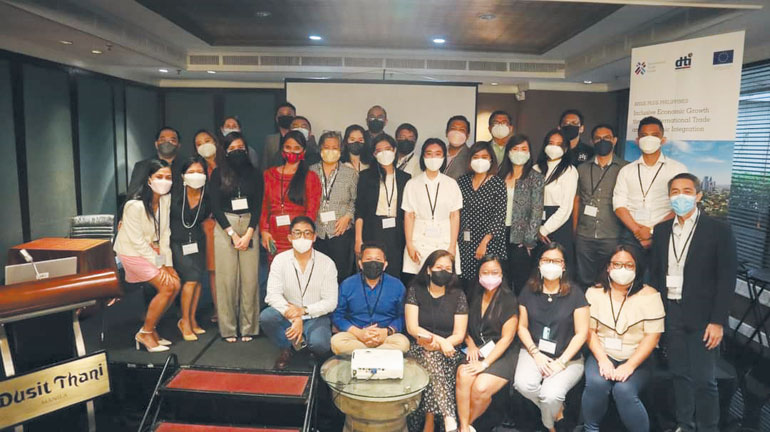
By Chelsey Keith P. Ignacio, Special Features Writer
Highlights from the International Trade Centre (ITC) Ecosystem Mapping Report for the Philippines were presented at the workshop on “Strengthening Philippine Entrepreneurship: Findings and Key Recommendations from the Ecosystem Mapping” held last May 18.
The Ecosystem Mapping Report provided a ‘bird’s-eye-view’ of the business supporting organizations operating in the country. It included insights into service overlapping and gaps in the offerings and recommendations formulated based on the findings for the institutions in the network.
The report, which has also been conducted in other countries, followed the ITC’s methodology. Its three pillars include service mapping and gaps analysis, network analysis, and user experience analysis.
ITC National Expert and Startup Village Founder Carlo Calimon went over the report’s first pillar. “There are many [ecosystem] players, whether it’s incubators, accelerators, investor groups, associations, and the like. And at the end of the day, their objective remains the same: to support the development of entrepreneurs in the country,” he shared.
He also explained the eight gaps identified regarding the service offerings, among which concern government support and leadership for the ecosystem, limited access to funding (especially for the idea to the startup stage), and lack of focus on areas outside Metro Manila.
One of the identified overlaps is duplication of programs, with majority of the support focused on the idea to the early- stage entrepreneurs. Another overlap is high competition as organizations compete for limited resources like funding and the startups themselves because of comparable service offerings.
“In the Philippines, what we’ve seen compared to other ecosystems that ITC has mapped is there’s an abundance of actors in the ecosystem,” Claire Sterngold, Ye! community manager at ITC, noted. “However… while you have a lot of actors in the ecosystem, we’re still exhibiting more of a hub and spoke model where we have a number of actors with a high degree centrality, where they have high numbers of connections coming into them. But then, the bridging capacity, the betweenness centrality, between factors that are connected to the key node is not quite there. And that’s where the network analysis can provide guidance and insights into how these networks can be strengthened.”
Key insights presented from the report’s network analysis are that connections are concentrated in Manila; the potential growth through differentiating connections; setting up a country guide that could provide information to entrepreneurs; and expanding the support beyond the technology sector.
Furthermore, despite various support available, one of the six key findings from the report’s user experience analysis is that entrepreneurs do not know where to go for support. “So it’s not about a lack of presence or support programs; it’s about a lack of awareness of said programs,” said Chino Atilano, an ITC national expert and TimeFree Innovation founder.
Credibility is another challenge for young entrepreneurs. “It hinders them from doing business with different corporations, potential customers and potential partners, just because of their age and most especially if they’re also female,” Mr. Atilano shared.
Nine recommendations are presented in the report to help strengthen the country’s support ecosystem for startups, especially for the youth and women-led.
The Ecosystem Mapping Report will be published on the website of the Department of Trade and Industry (DTI) by the end of the month.
“The report is a welcome addition to our continuing effort to better understand the Philippine entrepreneurship ecosystem and work together to further foster innovation and collaboration between and among government agencies at both the national and local levels, the stakeholders from industry, startups, MSMEs, youth and women entrepreneurs, academe, and other sectors,” DTI Undersecretary Dr. Rafaelita M. Aldaba said.
Aside from the introduction of the mapping report, the workshop also included a panel discussion and breakout discussions. It is organized together with the DTI under the ARISE Plus Philippines, a European Union-funded project that seeks to cultivate inclusive economic growth in the country through improved international trade performance and competitiveness as well as economic integration.



